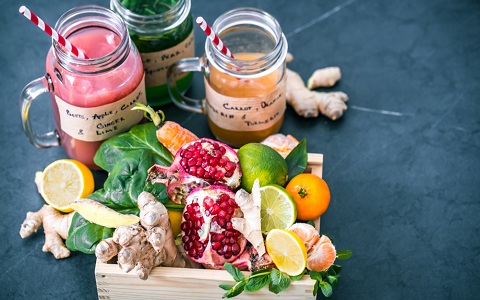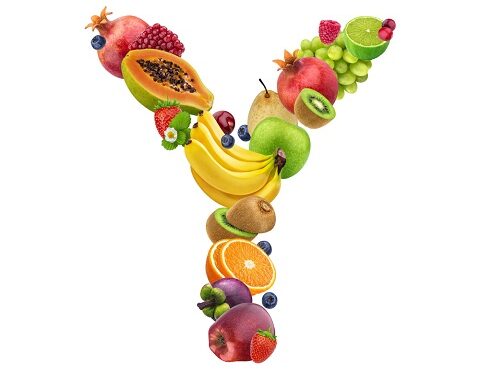In today’s fast-paced world, maintaining a balanced diet is essential for overall health and well-being. While solid foods play a crucial role in providing essential nutrients, the significance of staying hydrated with healthy beverages cannot be overstated. From hydrating classics to nutrient-rich concoctions, here are ten healthy drinks to incorporate into your daily diet for optimal health.
1. Water: The Ultimate Hydrator
Water is the cornerstone of a healthy diet and the most essential beverage for hydration. It helps regulate body temperature, aids in digestion, and flushes out toxins. Drinking an adequate amount of water daily is crucial for overall health and well-being. It’s recommended to consume at least eight glasses of water per day, but individual needs may vary based on factors such as age, weight, and activity level. But yes, it is recommended to check the amount of minerals in the water you are drinking everyday.
2. Green Tea: A Powerhouse of Antioxidants
Green tea is celebrated for its high antioxidant content, particularly catechins, which have been linked to numerous health benefits. These antioxidants help combat oxidative stress and inflammation in the body, reducing the risk of chronic diseases like heart disease, cancer, and diabetes. Additionally, green tea contains caffeine and L-theanine, which can improve brain function and promote relaxation and focus.
To enjoy the full benefits of green tea, opt for high-quality loose-leaf tea or tea bags and steep them in hot water for 3-5 minutes. You can enjoy it hot or cold, plain or with a squeeze of lemon for added flavor.
3. Vegetable Juice: Packed with Vitamins and Minerals
Freshly squeezed vegetable juices are nutrient-dense elixirs that provide a concentrated dose of vitamins, minerals, and antioxidants. Incorporating a variety of vegetables into your juice blends allows you to benefit from a wide range of nutrients, including vitamin A, vitamin C, potassium, and folate.
Popular vegetables for juicing include leafy greens like kale and spinach, as well as carrots, cucumbers, beets, and celery. Experiment with different combinations to find your favorite flavor profile. To retain the maximum nutritional value, consume vegetable juice immediately after juicing or store it in an airtight container in the refrigerator for up to 24 hours.
4. Herbal Teas: Relaxing and Beneficial for Digestion
Herbal teas, such as chamomile, peppermint, and ginger, offer a soothing and aromatic way to support digestion and relaxation. These caffeine-free beverages can alleviate digestive discomfort, calm the mind, and promote restful sleep. Additionally, many herbal teas boast medicinal properties that can aid in the treatment of various ailments, from nausea and indigestion to insomnia and anxiety.
To brew herbal tea, simply steep the desired herbs in hot water for 5-10 minutes, depending on the strength and flavor you prefer. You can enjoy herbal tea on its own or sweeten it with honey or a splash of lemon juice for added taste.
5. Smoothies: Blend Your Way to Health
Smoothies are versatile concoctions that allow you to pack a variety of fruits, vegetables, and other nutritious ingredients into a single glass. Whether you prefer a refreshing fruit smoothie or a green detox blend, smoothies are an excellent way to boost your intake of vitamins, minerals, and fiber. They’re also convenient for on-the-go consumption, making them ideal for busy individuals looking to maintain a healthy lifestyle.
To make a nutritious smoothie, start with a liquid base like water, coconut water, almond milk, or Greek yogurt. Add a combination of fruits and vegetables, such as bananas, berries, spinach, kale, and avocado, for sweetness, flavor, and texture. You can also incorporate protein sources like protein powder, nut butter, or tofu for added satiety and muscle repair.
6. Kombucha: A Fermented Drink for Gut Health
Kombucha is a fermented tea beverage known for its probiotic properties and tangy flavor profile. Probiotics are beneficial bacteria that support gut health and aid in digestion. Enjoying kombucha regularly can contribute to a healthy microbiome and improved digestion. Additionally, kombucha contains antioxidants and organic acids that may help boost immunity, reduce inflammation, and detoxify the body.
Kombucha is typically made from black or green tea, sugar, and a SCOBY (symbiotic culture of bacteria and yeast). During the fermentation process, the SCOBY consumes the sugar and produces probiotics, resulting in a fizzy and tangy beverage. You can find kombucha at health food stores or brew it at home using a kombucha starter kit.
7. Coconut Water: Nature’s Electrolyte Replenisher
Coconut water is a clear liquid extracted from young green coconuts and is naturally rich in electrolytes, including potassium, magnesium, and sodium. These electrolytes play a vital role in hydration, muscle function, and nerve transmission, making coconut water an excellent choice for replenishing fluids after exercise or during periods of dehydration.
In addition to its electrolyte content, coconut water is low in calories and sugar, making it a hydrating option for those watching their calorie intake or managing diabetes. It has a naturally sweet and refreshing taste, making it a popular beverage choice for tropical climates and hot summer days.
8. Milk Alternatives: Nutritious Options for Dairy-Free Diets
For individuals with lactose intolerance or dairy allergies, milk alternatives like almond milk, soy milk, and oat milk offer nutritious alternatives. These plant-based beverages are fortified with vitamins and minerals, including calcium, vitamin D, and vitamin B12, to mimic the nutritional profile of cow’s milk. Additionally, they’re naturally free from cholesterol and lactose, making them suitable for vegans and those with dietary restrictions.
When choosing a milk alternative, opt for unsweetened varieties to avoid added sugars and excess calories. You can enjoy milk alternatives on their own or use them in cooking and baking as a dairy-free substitute for milk. They’re available in various flavors, including original, vanilla, chocolate, and unsweetened, to suit different preferences and recipes.
9. Fruit Infused Water: Refreshing and Flavorful Hydration
Fruit infused water, also known as detox water or spa water, is a delicious and hydrating beverage that adds natural flavor to plain water. By infusing water with fresh fruits, herbs, and spices, you can create a refreshing and flavorful drink without added sugars or artificial flavors. Fruit infused water not only enhances the taste of water but also provides additional vitamins, minerals, and antioxidants from the fruits and herbs.
To make fruit infused water, simply fill a pitcher with filtered water and add your choice of sliced fruits, such as berries, citrus fruits, melons, and cucumbers, along with herbs like mint, basil, or rosemary. Let the ingredients steep in the water for a few hours in the refrigerator to allow the flavors to meld together. You can adjust the ingredients and flavor intensity according to your preference, making it a customizable and enjoyable beverage for all occasions.
10. Herbal Lemonade: Zesty and Nourishing Quencher
Herbal lemonade is a revitalizing and nourishing beverage that combines the tartness of lemon with the soothing properties of herbs. By infusing lemonade with herbal extracts or brewed herbal tea, you can create a zesty and aromatic drink that refreshes the body and invigorates the senses. Herbal lemonade is not only hydrating but also provides additional health benefits from the herbs, such as improved digestion, immune support, and stress relief.
To make herbal lemonade, start by preparing a batch of lemonade using freshly squeezed lemon juice, water, and a natural sweetener like honey or maple syrup. Then, infuse the lemonade with your choice of herbs, such as lavender, thyme, or basil, either by steeping them directly in the lemonade or adding herbal extracts or tinctures. Chill the herbal lemonade in the refrigerator until cold, and serve it over ice with a garnish of fresh herbs or lemon slices for a refreshing and revitalizing drink that’s perfect for any time of day.
FAQs About Healthy Drinks for a Balanced Diet
While other beverages like herbal teas and coconut water contribute to hydration, water remains the best choice for staying adequately hydrated due to its purity and lack of additives.
Smoothies can be a nutritious meal replacement option when balanced with protein, healthy fats, and fiber-rich ingredients to provide sustained energy and satiety.
Milk alternatives can be incorporated into any diet as a nutritious option, but they’re particularly beneficial for individuals with lactose intolerance or dairy allergies.
While green tea offers numerous health benefits, excessive consumption may lead to adverse effects due to its caffeine content. It’s best to enjoy green tea in moderation as part of a balanced diet.
To maximize the nutritional value of homemade vegetable juice, include a variety of colorful vegetables, limit added sugars or sweeteners, and consume it shortly after juicing to retain freshness and potency.
Conclusion
Incorporating a variety of healthy drinks into your daily diet is a simple yet effective way to support overall health and well-being. From hydrating staples like water and coconut water to nutrient-rich options like green tea and vegetable juice, there are plenty of delicious beverages to choose from. By making mindful choices and staying hydrated with nutritious drinks, you can nourish your body and thrive.





